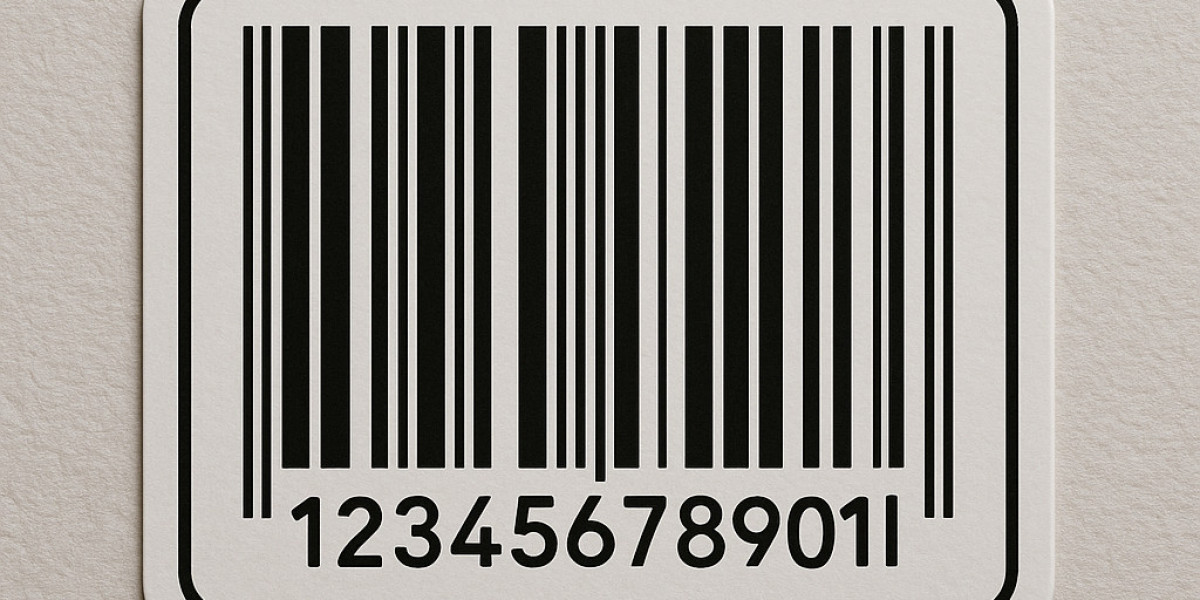In today’s fast-paced commercial landscape, custom barcode sticker play an essential role in helping businesses streamline operations, manage inventory, and ensure product traceability. Whether you're in retail, manufacturing, logistics, healthcare, or e-commerce, barcode stickers serve as a cost-effective and efficient tool for automation and data management. With customization, they become even more powerful by meeting the specific requirements of different applications and environments.
What Are Custom Barcode Stickers?
Custom barcode stickers are adhesive labels that feature barcode symbols tailored to specific business needs. Unlike standard pre-made barcodes, custom stickers are designed with unique specifications such as size, shape, material, printing format, and data content. These stickers can include one-dimensional (1D) or two-dimensional (2D) barcodes like QR codes, DataMatrix, or Code 128, along with additional elements such as logos, serial numbers, product descriptions, and company branding.
Benefits of Custom Barcode Stickers
Inventory Accuracy
Custom barcode labels help track stock levels with precision, reducing human error and ensuring inventory data is always up to date.Enhanced Branding
Incorporating logos, colors, and fonts into barcode stickers reinforces brand identity on every product or package.Efficient Workflow
Barcodes automate data entry processes, improving the speed and accuracy of checkout, shipping, receiving, and asset tracking.Adaptability
Tailored to specific materials or environmental conditions (e.g., heat, cold, moisture), custom stickers can be used across different industries and locations.Security and Traceability
Serialized barcodes ensure each item is uniquely identifiable, aiding in product recalls, theft prevention, and quality control.
Key Features to Consider
When ordering or designing custom barcode stickers, consider the following features:
1. Material Type
Paper – Cost-effective for indoor or short-term use.
Vinyl or Polyester – Durable and suitable for outdoor use or exposure to harsh conditions.
Tamper-Evident – Designed to break upon removal to prevent product tampering.
2. Adhesive Options
Permanent – Strong adhesion for long-term application.
Removable – Ideal for temporary labeling without leaving residue.
High-Temperature – Suitable for hot environments or machinery parts.
3. Barcode Type
UPC, EAN, Code 39, Code 128 – Common for retail and logistics.
QR Code, DataMatrix – Ideal for encoding more data and mobile scanning.
4. Printing Method
Thermal Transfer – Offers long-lasting print quality.
Direct Thermal – No ribbon required, suited for short-term applications.
Digital or Flexographic Printing – Great for colorful or high-volume designs.
5. Custom Design Elements
Company name or logo
Color-coded systems for category identification
Sequential numbering or batch codes
Product descriptions or specifications
Applications of Custom Barcode Stickers
• Retail and E-commerce
Product tagging, price labeling, inventory management, and POS integration.
• Manufacturing
Part tracking, production control, quality checks, and supply chain logistics.
• Healthcare
Patient wristbands, pharmaceutical tracking, medical inventory control.
• Warehousing and Logistics
Asset tracking, location identification, shipment labeling.
• Education and Libraries
Book tagging, student ID barcodes, equipment tracking.
Designing Your Custom Barcode Stickers
Creating effective barcode labels involves a blend of functionality and brand appeal. Here are some best practices:
Ensure Barcode Readability – Maintain appropriate quiet zones (blank margins) and contrast between the background and bars.
Choose the Right Size – Depending on the scanning distance and application space, select the optimal size for visibility and scanning accuracy.
Use High-Resolution Printing – Crisp, clear prints prevent scanning issues.
Test Before Mass Production – Always verify scan functionality using your scanners or POS systems.
Custom Barcode Sticker Suppliers
Many printing and packaging companies offer custom barcode sticker solutions. While choosing a supplier, consider the following:
Customization capabilities (materials, sizes, colors, data encoding)
Turnaround time and minimum order quantity
Durability and quality assurance
Integration with your inventory or ERP system
Sample offerings for testing
Some popular providers include:
Avery Dennison
Zebra Technologies
Online custom sticker printers (UPrinting, Sticker Mule, etc.)
Local print shops with label design capabilities
Conclusion
Custom barcode stickers are much more than just product labels — they are powerful tools for business automation, product management, and brand enhancement. By choosing the right material, design, and barcode format, you ensure operational efficiency, better customer experiences, and seamless integration into your business processes.










